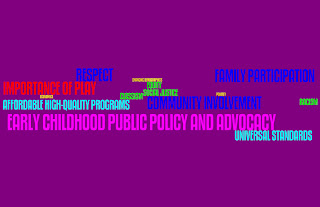1. United Nations Education, Scientific and
Cultural Organization (unesco.org, n.d.)
The mission
of UNESCO (their education sector) is to provide international leadership to
create learning societies with educational opportunities for all populations; provide
expertise and foster partnerships to strengthen national educational leadership
and the capacity of countries to offer quality education for all; work as an
intellectual leader, an honest broker and clearing house for ideas, propelling
both countries and the international community to accelerate progress towards
these goals; and facilitate the development of partnerships and monitors progress,
in particular by publishing an annual Global Monitoring Report that tracks the
achievements of countries and the international community towards the six
Education for All goals (unesco.org, n.d.).
The job
opportunities I found for this organization were all short-term as the
Education Sector needed some extra services to work with their permanent
staff. However, each of these jobs
required the applicant to reside in Paris, France. The job chosen for this assignment was Associate
Project Officer. The main
responsibilities are under the overall authority of the Assistant
Director-General for Education, the overall supervision of the Chief of Section
for Teacher Development and Education Policies in the division for Teacher Development
and Higher Education (ED/THE/TEP), and the immediate supervision of the Senior
Project Officer (Nokia Project Coordinator), the incumbent will contribute to
the support of projects under the UNESCO Nokia Partnership. The selected person will contribute to
several projects, primarily related to the section’s work on mobile learning
and policies (unesco.com, n.d.).
The required qualifications for this job are as follows:
Education: Advanced university degree (Master or
equivalent) in a subject of direct relevance to education policy analysis, such
as public policy, sociology or the economics of education.
Work Experience: 1 to 2 years of professional experience
in research and analytical activities, with a strong education policy focus,
including one year at the international level; extensive practical experience
in the organization of major international conferences.
Skills/Competencies: Excellent
ability to undertake analysis; ability to work effectively with research
institutions and experts at all levels in other national and international
organizations; very strong organizational skills and ability to manage projects
effectively; proven capacity to produce high-quality and analytical reports and
recommendations from a range of quantitative and qualitative data, and to link
evidence to policy recommendations; ability to co-ordinate the work of a
multi-national project team, to contribute to the work of other professional
staff, to work under pressure and to meet strict deadlines; ability to work
effectively in a multi-cultural environment.
Languages:
Excellent oral and written communication skills including
excellent drafting skill in English. Working knowledge of French would be an
asset. Knowledge of other UNESCO official languages would be an advantage
(unesco.org, n.d.).
2. World Organization for Early Childhood
Education (omep-usnc.org)
The World
Organization for Early Childhood Education (omep-usnc.org) is part of an
international, non-profit, non-governmental organization with members in more
than 70 countries. Their goal is to
ensure the wellbeing, rights, and education of children from birth to age eight
and their families in the USA and around the world today as well as in the
future (omep-usnc.org, n.d.). Though
there are no jobs listed on the website, there is information on becoming a
member. The part I like about membership
in this organization is that a portion of the dues go directly to support
OMEP-USA projects, such as the Haiti Relief fund, a preschool support project
in Jamaica, or a professional materials collection for new early childhood
teacher preparation program in Jamaica (omep-usnc.org). By becoming a member it would also be easier
to be kept informed of upcoming job opportunities which may come up. It would also be a very rewarding and
educational experience.
3. Association for Childhood Education
International (acei.org)
The
Association for Childhood Education International. ACEI is a 501(c) 3 charitable
organization. This organization is
interested in sharing new approaches to the education of children and ensuring
that these approaches are delivered in ways that enhance children’s individual
skills and abilities and provide opportunities for success in life (acei.org,
n.d.). Their mission is to promote and
support in the global community the optimal education, development, and
well-being of children ages birth through early adolescence, and to influence
the professional growth of educators and the efforts of others who are committed
to the needs of children in a changing society (acei.org, n.d.). Their vision is that every child in every
nation will have access to a quality education.
This education will prepare children to become responsible and engaged
citizens and ready them for life in a changing world (acei.org). I could not find any job opportunities for
this organization. However, I did find
that you can be involved by joining the organization at varying levels and
cost. By becoming a member it would be
easier to be kept informed of upcoming job opportunities which may come up. It would also be a very rewarding and
educational experience.
References
Association
for Childhood Education International. (n.d.). Retrieved November 23, 2012, from http://www.acei.org/
Council
for Professional Recognition. (n.d.). Retrieved November 23, 2012, from http://www.cdacouncil.org/
Education | United
Nations Educational, Scientific and Cultural Organization. (n.d.). Unescoorg
RSS. Retrieved November 24, 2012, from http://www.unesco.org/new/en/education/
